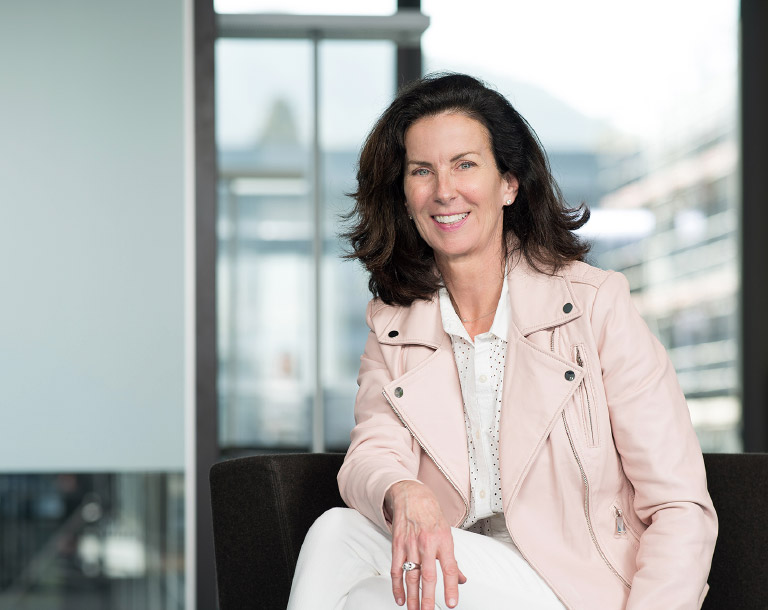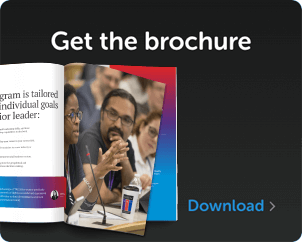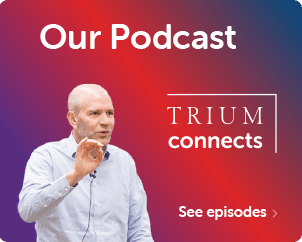

Kathleen DeRose
You could say that TRIUM alumna Kathleen DeRose’s recent professional transition is a homecoming of sorts. In addition to being a Finance Professor, developing the curriculum and teaching in MBA and undergraduate Fintech programs, she was recently appointed Director of Fintech at The Fubon Center, a new hub at one of TRIUM’s home schools—NYU’s Stern School of Business. She is also active in the Fintech commercial world, as a board member at Evolute AG, a Swiss wealthtech company.
TRIUM expanded my world. I’m inspired every day by our professors, students, and partners.
With a background in traditional finance—including senior executive positions at Credit Suisse, Bessemer Trust, and Deutsche Bank—Kathleen lives at the intersection of finance and technology. In her new role, Kathleen leads efforts that prepare students to be innovators in this exciting new world.
You were recently appointed as Fintech lead at NYU’s Fubon Center for Technology, Business, and Innovation. Congratulations! What are you hoping to accomplish in this position? How will this role challenge you, and what professional strengths and skills will you draw on?
It’s a huge honor and very humbling to be chosen! This appointment consolidates three important Fintech initiatives: Fintech curriculum development, Fintech research, and Fintech ecosystem building, in a single interdisciplinary center. Our challenge is to advance quickly from the foothold we’ve established as the number one undergraduate and graduate business school Fintech programs, with the most exciting courses, the most insightful thought leadership, and the most effective network. The generosity of our donor and our unique spot in New York City makes these ambitions achievable. This is a leadership role requiring long-term vision and high confidence in our mission, both of which are critical to engaging with our corporate and academic audiences.
TRIUM helped me develop the emotional and business intelligence required for such a role, and my corporate background also helps. I’m inspired every day by our professors, students, and partners.
What excites you most about the intersection of technology and finance?
We are at an important crossroads; automation is disrupting financial services, and for the first time we may finally see financial intermediation costs fall; they have been notoriously sticky despite decades of technology-driven productivity gains. If costs drop, the financial system may become more transparent and accessible, with profound benefits to the economy and society. Such widespread disruption also brings risks, however, like the threat of financial surveillance. Both are fascinating areas for research at the intersection of finance and technology.
The changing digital landscape requires businesses to adapt quickly to advancing technologies. Do you feel that TRIUM encourages innovation, adaptive thinking, and risk taking?
Whenever anyone suggests that on-the-job training is a viable substitute for higher education (a pet peeve), implying that higher education is not worth the effort and expense, I point to both the concrete and intangible benefits of a program like TRIUM. TRIUM provides usable skills. Unlike on-the-job training, these are universal and portable skills. And they absolutely enable innovation and adaptation. And the relationships built during TRIUM? No one can replicate those, or take them away.
Speaking of those relationships: do you keep up with your TRIUM cohort? How have you seen your peers grow and stretch professionally in the past seven years?
I have an amazing TRIUM cohort. We became fast friends during the course and it’s been fun to watch their continued success. I am so proud to know them. They teach me something every day.
What’s your perspective on progress in the past decade in getting women in leadership roles – especially in the financial and technology industries? As a thought-leader what advice do you have for women aspiring to leadership roles?
Women have made significant progress, but based on the numbers (unequal pay, lack of women at the most senior levels), women and other overlooked groups are still not getting their proportionate share of economic opportunity, particularly in STEM fields. Women should not be tasked with fixing this problem. Everyone—men and women—must own this problem and be accountable for change, not only because diversity brings economic benefits, but also because it’s the right thing to do. The best advice I can give is for women to demand what they deserve and for men to truly support them by changing some of the behaviors that perpetuate the problem, whether it’s laughing along with the locker room joke or populating the boardroom with their lookalike friends.
As someone who has more than a half a decade of experience after TRIUM, what would you say to those currently considering the TRIUM challenge? What has been your longer-term return on investment in the program?
There was an immediate ROI because I wanted an international posting and obtained one during TRIUM, and since then I’ve been lucky enough to work in Zurich, London, Singapore and Shanghai. Longer term, staying in touch with my international cohort of TRIUM friends and colleagues has been priceless!





